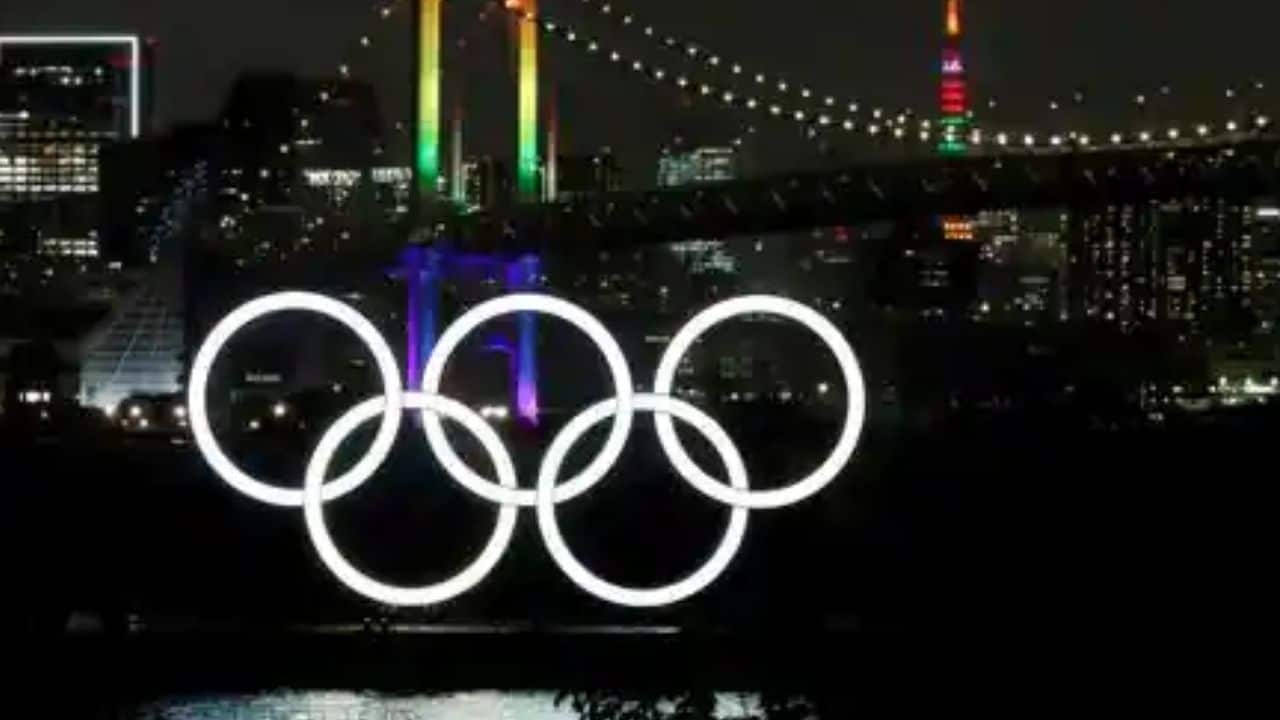Have a look at the members, flag and emblem meaning of the Olympic Refugee team at the Paris Olympics 2024
With the 2024 Paris Olympic Games all set to begin very soon, this year again the IOC Refugee Olympic Team is all set feature a host of athletes across various competitions, find out more about them below.
This year’s event will mark their third appearance at the Olympic Games, representing millions of displaced people across the world.
Explained what is the IOC Refugee in Olympic Team the Paris Olympics 2024, athletes members list, flag and emblem meaning
According to a report by the UNHCR, there were an estimated 114 million people displaced worldwide as of September 2023.
IOC Refugee Olympic Team
This year, the IOC Refugee Olympic Team is set to feature thirty-seven athletes from across 11 different countries. The team will be hosted by 15 National Olympic Committees (NOCs) and compete across 12 sports. The International Olympic Committee (IOC) President, Thomas Bach, made the announcement through a live-streamed ceremony from the Olympic House in Lausanne, Switzerland.
The IOC Executive Board (EB) approved the team composition based on a number of criteria including each athlete’s sporting performance and their refugee status. The board also took into consideration a balanced representation of sport and gender, and the spread of originating countries. They selected most of the athletes based on the refugee athletes that the IOC supports through the Refugee Athletes Scholarship Programme. The IOC’s Olympic Solidarity programme funs the programme while the Olympic Refuge Foundation manages it.
Refugee Olympic Team emblem
This year the Refugee Olympic Team will compete under its own team emblem for the first time and not the official Olympics flag. The emblem will serve as a unifying symbol bringing together diverse athletes and offering the team its own unique identity. The emblem will feature a heart in the centre, originating from the Olympic Refuge Foundation logo.
Other aspects from the Olympic Games
Aside from helping refugee athletes compete in the Olympics, the IOC takes other conscious efforts towards helping refugees. The IOC established the Olympic Refuge Foundation (ORF) in 2017 to build on this commitment. The Foundation functions under a National Olympic Committee that manages the Refugee Athlete Scholarship-holders and the IOC Refugee Olympic Team.
Besides supporting elite athletes in the Olympic Games, the ORF provides access to safe sport for displaced people worldwide. Ever since its inception in 2017, the ORF has provided safe access to safe sport for almost 400,000 young people. Meanwhile, over 1,600 coaches have undergone training in delivering safe sport sessions, supporting young people across 11 countries and five continents.
Made up of 37 athletes, hosted by 15 National Olympic Committees and competing across 12 sports, the team is led by the Chef de Mission, Masomah Ali Zada.
They will compete in 12 different sports: aquatics (swimming), athletics, badminton, boxing, breaking, canoe (slalom and sprint), cycling (road), judo, shooting, taekwondo, weightlifting, and wrestling (freestyle and Greco-Roman).
Farida Abaroge (female, Ethiopia, France, athletics)
Omid Ahmadisafa (male, Iran, Germany, boxing)
Yahya Al Ghotany (male, Syria, Jordan, taekwondo)
Mohammad Amin Alsalami (male, Syria, Germany, athletics)
Amir Ansari (male, Afghanistan, Sweden, road cycling)
Sibghatullah Arab (male, Afghanistan, Germany, judo)
Matin Balsini (male, Iran, Great Britain, swimming)
Mahboubeh Barbari Zharfi (female, Iran, Germany, judo)
Edilio Francisco Centeno Nieves (male, Venezuela, Mexico, shooting sport)
Muna Dahouk (female, Syria, Netherlands, judo)
Jamal Abdelmaji Eisa Mohammed (male, Sudan, Israel, athletics)
Saeid Fazloula (male, Iran, Germany, canoe sprint)
Tachlowini Gabriyesos (male, Eritrea, Israel, athletics)
Eyeru Gebru (female, Ethiopia, France, road cycling)
Yekta Jamali Galeh (female, Iran, Germany, weightlifting)
Fernando Dayán Jorge Enríquez (male, Cuba, USA, canoe sprint)
Dorian Keletela (male, Democratic Republic of Congo, France, athletics)
Adnan Khankan (male, Syria, Germany, judo)
Perina Lokure (female, South Sudan, Kenya, athletics)
Iman Mahdavi (male, Iran, Italy, freestyle wrestling)
Farzad Mansouri (male, Afghanistan, Great Britain, taekwondo)
Alaa Maso (male, Syria, Germany, swimming)
Kasra Mehdipournejad (male, Iran, Germany, taekwondo)
Cindy Ngamba (female, Cameroon, Great Britain, boxing)
Dina Pouryounes Langeroudi (female, Iran, Netherlands, taekwondo)
Mohammad Rashnonezhad (male, Iran, Netherlands, judo)
Amir Rezanejad (male, Iran, Germany, canoe slalom)
Ramiro Mora Romero (male, Cuba, Great Britain, weightlifting)
Nigara Shaheen (female, Afghanistan, Canada, judo)
Luna Solomon (female, Eritrea, Switzerland, shooting sport)
Saman Soltani (female, Iran, Austria, canoe sprint)
Musa Suliman (male, Sudan, Switzerland, athletics)
Manizha Talash (female, Afghanistan, Spain, breaking)
Hadi Tiranvalipour (male, Iran, Italy, taekwondo)
Jamal Valizadeh (male, Iran, France, Greco-Roman wrestling)
ALSO READ: Boruto Two Blue Vortex chapter 13 release date, time, spoilers and where to read online



